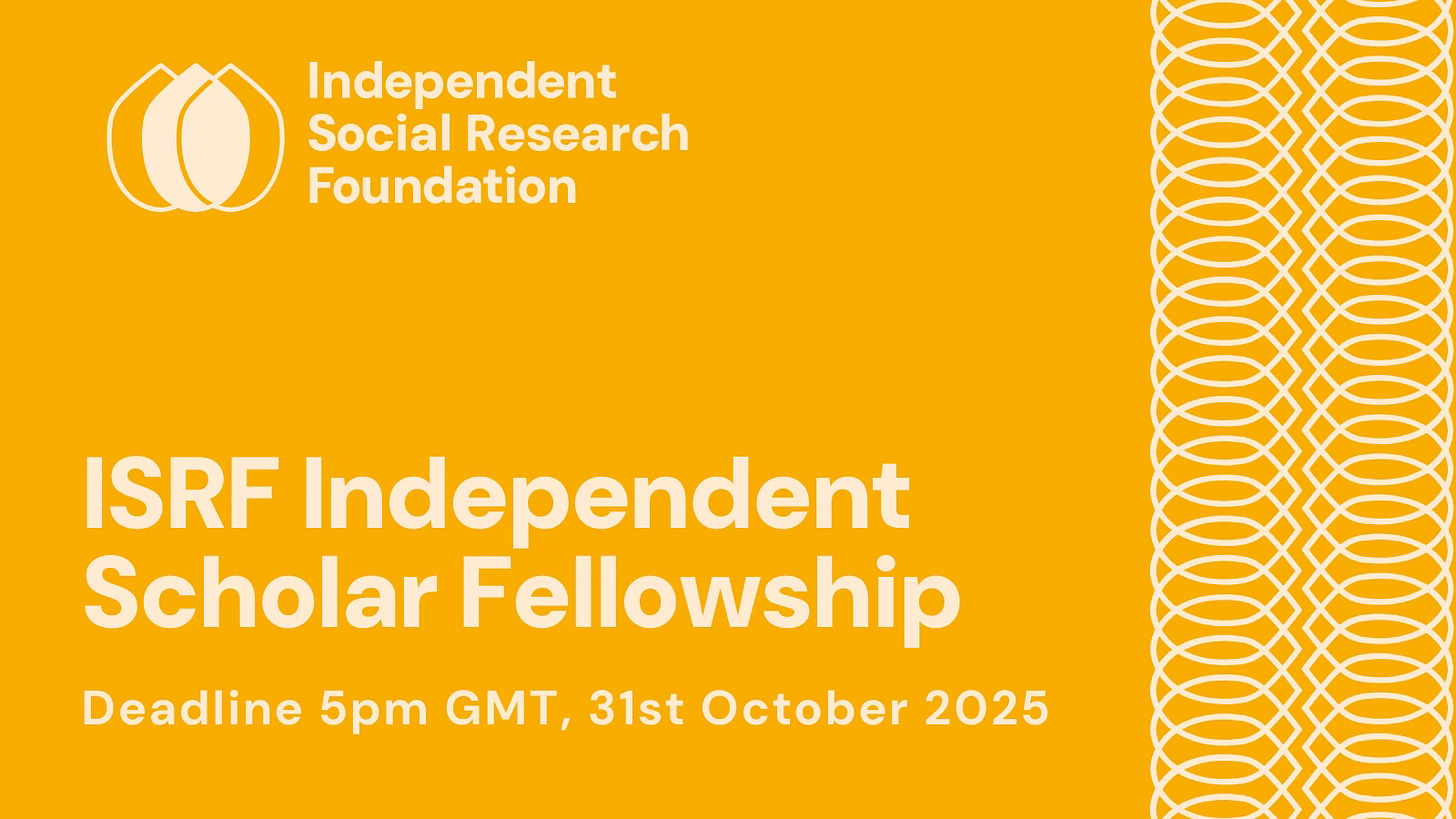Launch Announcement - Independent Scholar Fellowship Competition
Our 11th Independent Scholar Fellowship competition has launched today. Apply by 31st October 2025.
ISRF Independent Scholar Fellowship Competition
The Independent Social Research Foundation wishes to support Independent Scholars to explore and present original research ideas which take new approaches, and suggest new solutions, to real world social problems.
Independent Scholars from within Europe are eligible to apply, and they will not hold an appointment – full-time or part-time, temporary or permanent – at an institution of higher education and research.
This category of Fellowship is intended for scholars who have not pursued - or have been obstructed from pursuing - a traditional academic career path.
An ‘Independent Scholar’ is understood as someone, whether or not currently in employment, who is engaged in intellectual work outside of academic employment of a nature and standard comparable to that of a professional academic scholar.
For the avoidance of doubt: newly qualified post-doctoral scholars, as-yet unemployed in academia, are not considered Independent Scholars for the purpose of this competition; nor are scholars who are actively seeking further academic employment; nor retired scholars whose careers were spent working within academia.
The awards are intended as providing a stipend to allow applicants support for academic research and relief from non-academic work (including domestic care) for a period of up to one year.
The amount of an award will depend on individual circumstances – the ISRF expects applications for grants up to a maximum of €40,500 (or £35,000 for UK-based applicants), of which no more than €33,250 (or £28,750) may be allocated to the cost-of-living stipend. Up to €7,250 (or £6,250) may be requested to cover reasonable research expenses. Reasonable childcare or other domestic costs may be considered.
Eligible Research
The ISRF aims to fund innovative research which breaks with existing explanatory frameworks so as to address afresh empirical problems with no currently adequate theory or investigative methodology. Innovation may also come from controversial theoretical approaches motivated by critical challenge of incumbent theories. Interdisciplinarity in the generation of new investigative initiatives may be achieved by combining, cross-fertilising, and so transforming empirical methods and theoretical insights from the social sciences. Projects ranging across the breadth of the social scientific disciplines and interdisciplinary research fields are welcome, and relevant applications from scholars working within the arts and humanities are also encouraged.
Applicants should consult the Criteria as set out in the Further Particulars and show that they meet them. Applicants are expected to submit their complete application electronically via the online application system, in English.


